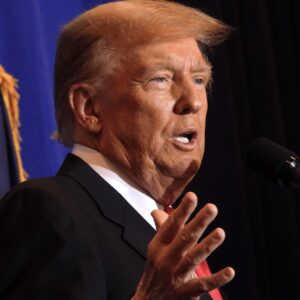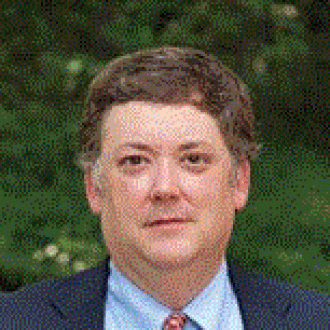In a legal saga in New York, the trial concerning hush-money payments by Donald Trump to porn actress Stormy Daniels has become a focal point of national debate. Amid discussions of non-disclosure agreements and legal proceedings, a striking irony emerges: the very concept of silencing seems to extend to the defendant — the trial is hushing Trump. Initially centered on a common legal practice, this trial has catalyzed into a broader dialogue about the boundaries of free speech.
In a country founded on the principles of unfettered expression, the right to voice one’s beliefs without fear of repercussion is a bedrock of the Constitution. Regardless of political standing, every individual is entitled to freedom of speech — a principle underscored by this case. However, Trump’s presence in the courtroom has constrained his ability to campaign and exercise his free speech rights, casting a shadow over the proceedings.
Fundamentally, free speech encompasses the freedom of ideas, granting individuals the autonomy to express, challenge or dissent. Yet, the trial’s unfolding narrative appears to muzzle the defendant and the broader discourse surrounding the case. This attempt to curtail Trump’s political speech infringes upon his individual rights and undermines the principles of open dialogue and the marketplace of ideas.
If Trump’s supposed hush-money payment to Daniels to prevent her disclosure of a sexual affair with Trump was a contribution to his campaign, then the prosecutor and judge should report a contribution to Joe Biden. It also seems that Trump did not get the “hush” for his money!
Efforts to silence Trump, disrupt his campaign, and constrain political speech mirror a broader trend of ideological intolerance, where dissenting viewpoints are marginalized and criminalized. This erosion of free speech strikes at the core of American identity, challenging the essence of our democratic ideals.
Ultimately, the trial surrounding hush-money payments transcends the individual, symbolizing a larger struggle to preserve our most cherished rights. By defending the right to speak freely, we reaffirm our commitment to the principles of freedom of speech and ensure the vitality of our republic. We must stand resolute in our defense of these rights, for they are the cornerstone upon which our nation thrives.
At its core, the trial raises questions about the legality of financial transactions, and the essence of freedom and the rule of law. In any democratic society, the right to express one’s beliefs, opinions and concerns is sacrosanct, forming the bedrock of civic engagement and political discourse. Yet, when individuals, particularly public figures, find themselves constrained in their ability to speak freely, it calls into question the very foundations of our political and judicial system.
The trial’s focus on hush-money payments is significant, but equally significant is the broader context in which it unfolds — a context characterized by political polarization, ideological warfare and a growing intolerance for dissenting viewpoints. In such an environment, the trial adds significance as a battleground for competing visions of democracy and governance.
For Trump, the trial represents a legal challenge and a test of his ability to exercise his rights as a citizen and a former president. It is a test of whether he can speak freely, without fear of retribution or censorship, and whether the principles of democracy that underpin our society still hold true.
The trial is about more than just Trump. It is about the future of free speech in America and the broader struggle to preserve our democratic institutions. It is about whether we will continue to uphold the principles of our Constitution and the rule of law or succumb to the forces of authoritarianism and repression.
Ultimately, the trial will be decided not just in the courtroom but in the court of public opinion. It will be decided by the millions of Americans who believe in the fundamental principles of democracy and are willing to fight for them. And it will be decided by the strength of our collective commitment to free speech and the values that define us as a nation.


